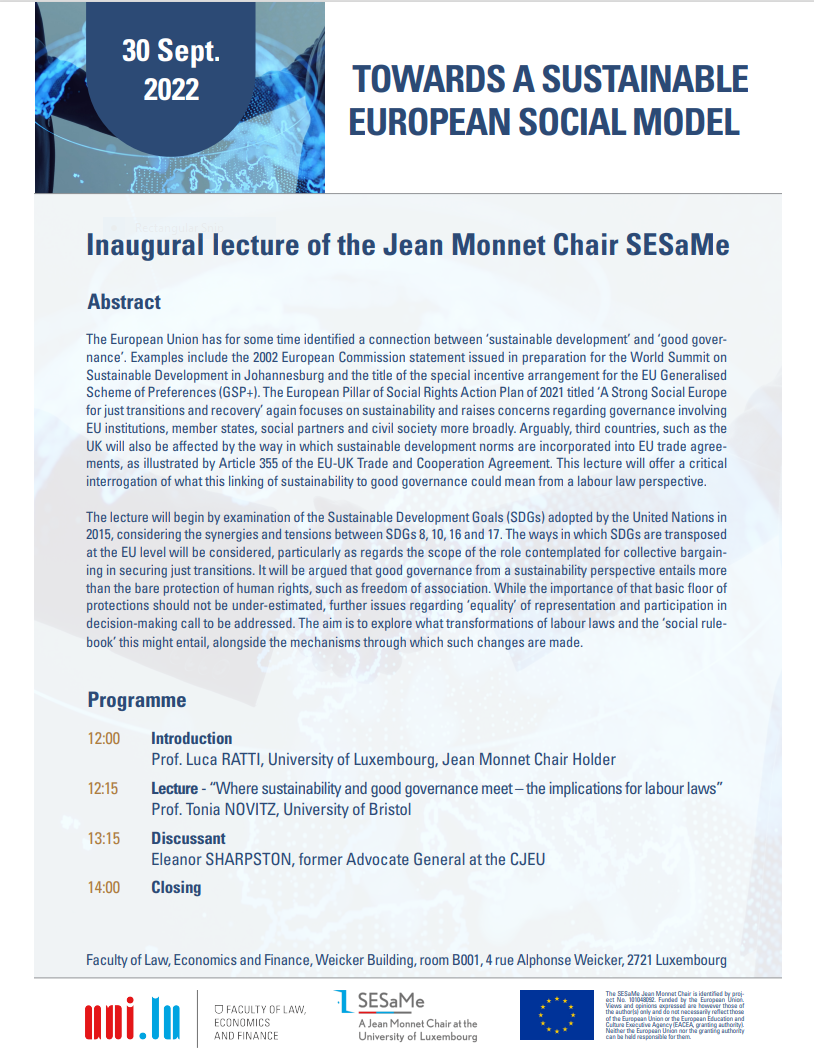Prof. Luca RATTI, University of Luxembourg, Jean Monnet Chair Holder
Keynote speechProf. Tonia NOVITZ, University of Bristol
Where sustainability and good governance meet – the implications for labour laws
Discussant
Eleanor SHARPSTON, former Advocate General at the CJEU
Abstract
The European Union has for some time identified a connection between ‘sustainable development’ and ‘good governance’. Examples include the 2002 European Commission statement issued in preparation for the World Summit on Sustainable Development in Johannesburg and the title of the special incentive arrangement for the EU Generalised Scheme of Preferences (GSP+). The European Pillar of Social Rights Action Plan of 2021 titled ‘A Strong Social Europe for just transitions and recovery’ again focuses on sustainability and raises concerns regarding governance involving EU institutions, member states, social partners and civil society more broadly. Arguably, third countries, such as the UK will also be affected by the way in which sustainable development norms are incorporated into EU trade agreements, as illustrated by Article 355 of the EU-UK Trade and Cooperation Agreement. This lecture will offer a critical interrogation of what this linking of sustainability to good governance could mean from a labour law perspective.
The lecture will begin by examination of the Sustainable Development Goals (SDGs) adopted by the United Nations in 2015, considering the synergies and tensions between SDGs 8, 10, 16 and 17. The ways in which SDGs are transposed at the EU level will be considered, particularly as regards the scope of the role contemplated for collective bargaining in securing just transitions. It will be argued that good governance from a sustainability perspective entails more than the bare protection of human rights, such as freedom of association. While the importance of that basic floor of protections should not be under-estimated, further issues regarding ‘equality’ of representation and participation in decision-making call to be addressed. The aim is to explore what transformations of labour laws and the ‘social rulebook’ this might entail, alongside the mechanisms through which such changes are made.
